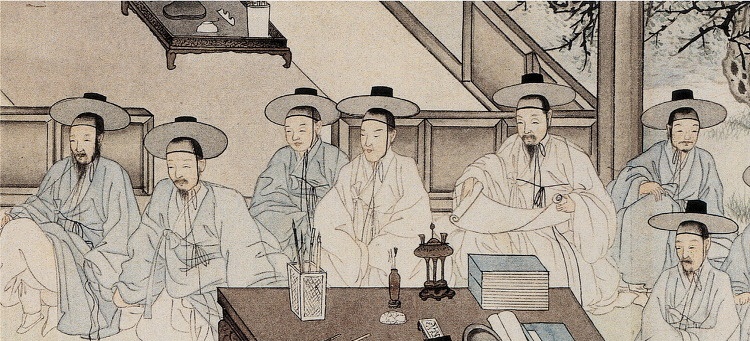Yashi Priya, Lucknow, Uttar Pradesh
Age in South Korea holds great significance as it greatly impacts all social interactions among people. It is not surprising if a Korean person asks you, your age the very first time they meet you. They are simply trying to find where you fit into their honorifics and hierarchy system. In South Korea, etiquette is largely derived from Korean Confucianism and focuses on the core values of the religion, collectivism, and philosophy.

Even though Korea follows the Chinese calendar, the method of counting age is quite different from the rest of the world. Infants are already a year old as soon as they are born. All Koreans turn a year older on New Year’s Day, that is, on 1st January. It is quite fascinating and amusing to think that a baby born on the 31st of December would turn two years old within two days. Thus, Korean Age can be one or two years more than the actual international age.
If someone is older, it is obligatory to use formal language while communicating. Using appropriate honorifics is a sign of respect for them. In Korean culture, the year a person is born is used to determine how well they can get along with someone. People born in the same year refer to each other as ‘chingu’ which means “friend” in the Korean language.
Confucian way of thinking puts emphasis on the idea that relationships between people are unequal with defined roles. When this natural inequality is accepted and understood, it becomes easier to maintain stable relations among individuals and, therefore, in society. However, it is important to understand that this hierarchy in relationships does not mean unending benefits for the superior. Everyone has a role to fill, and the role of a ‘superior’ is to protect and look after their subordinates.

Respect is always shown to those that are older than you. This involves following their opinion, waiting for their input, and lowering your gaze if they are an elder. Greeting seniors should be carried out by bowing with your hands by your sides or in front of you. Also, accepting anything from them must be done by using both hands or using your right hand while your left hand lightly supports your right elbow.
Table etiquettes and interactions are significantly affected by Korean hierarchy and social status. The oldest at the table is always the first to eat. He is not supposed to pour his own drink. It is always important to pay attention to not face an elder while drinking. You can simply turn your head away from them and partially hide your face to be respectful. While the younger people are supposed to pour drinks, the older person is supposed to pay for meals.
Though Confucian and traditional values constitute the roots of social and civil expectations in South Korea, their influence is weakening in the age of technology. A lot of rigid formalities and protocols are outdated and only followed in the older generations. In fact, the younger generations of Koreans are extremely Westernised and individualistic. Most of the Korean youth nowadays consider the judgment and opinion of peers from their age and status group more important than the views of those older and superior to them. However, the core value of having respect for the elders remain intact.
This was all about how age functions and is important in Korean society. Do you know any interesting age-related facts about South Korea? Share with us in the comments section below.

It’s so informative. Also it is wonderfully presented. Well done girl….!!! It is interesting and easy to know about different cultures through such articles…. Keep it up guys.
Informative!!!
This is a very well written piece of article. Sums up the topic of Age system in Korea in a very informative manner 🙂
It’s Written well